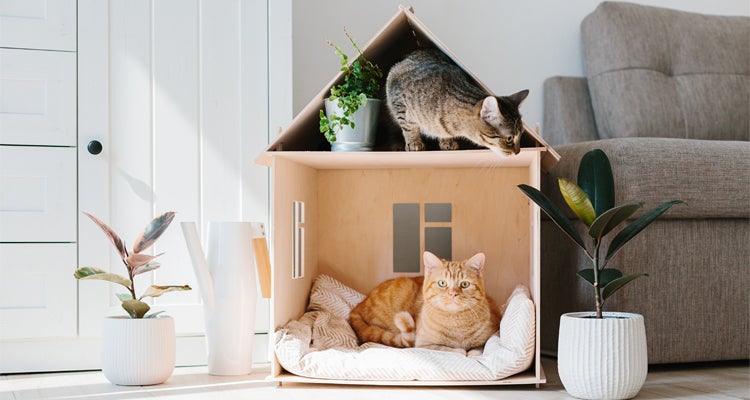
Similar to the way wild cats socialise, a regular health check is a good way to form a close bond with your kitten. Start at a young age and your kitten will soon consider it as just another natural routine. Before you start, choose a place where she is comfortable – like your lap or on a bed. Be gentle and use soft, reassuring words.
- Breathing and abdomen
Listen to her breathing, making sure that it's regular and not strained in any way. Very gently, run your hands along her sides, checking for anything that seems unusual.
- Eyes and ears
Look into her ears for scratches to the outer ear, inflammation or dark-coloured wax. Regular cleaning your kitten’s eyes and ears prevents infections and keeps her healthy. Look for discharge, inflammation, or signs of injury around the eyes. Never touch the eyeball, or put drops in without consulting your vet. Click here to know how to clean your kitten’s eyes and ears.
- Mouth
Gently open your kitten’s mouth and look for broken teeth, inflamed gums or a build-up of plaque deposits. Click here to know how to clean your kitten’s eyes and ears
. - Nose
Your kitten’s nose should be cool and moist. Crusty nose or incessant sneezing may indicate a cold. Find out how to tackle a cold here.
- Claws
Check if she has broken or missing claws. Look for injuries to the soft skin between her pads. Gentle pressure on her foot will unsheathe her claws. Click here to know how to take care of kitten claws.
When in doubt, consult your vet.
If you're worried about anything, keep an eye on your kitten for a day or two. If you still do not feel reassured, do fix an appointment with a local vet.












